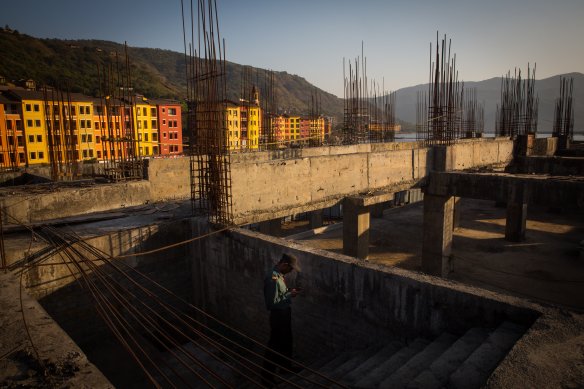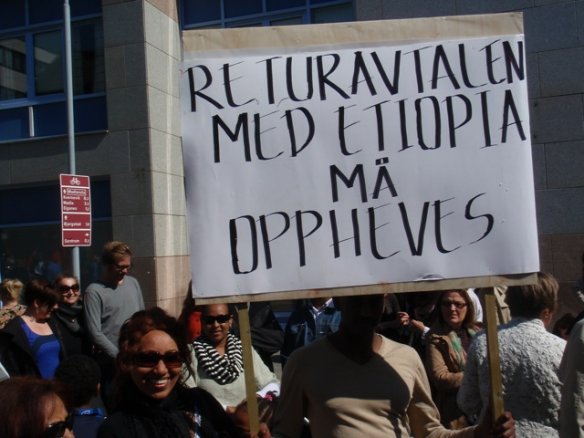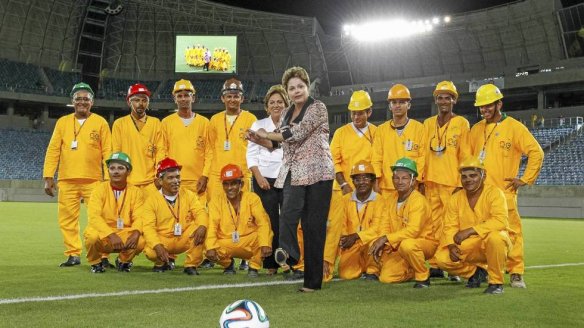Strictly speaking, the Plesetsk cosmodrome is not in the Arctic – it sits on the 63rd parallel, while the Arctic circle goes at 66° 33′ 44″ N. However, it has a prominent place in Russian Arctic policy, so the failure to launch the new Angara space rocket on June 27 is a major setback for this policy. Russian… Read more »
The Limits of post-22 July Media Debates
In times of crisis, citizens and victims typically look to the government for leadership, protection, direction, and order – what is often characterized as a ‘master narrative’. Faced with terror and tragedy journalists seek to comfort and reassure the public, and willingly and instinctively move from their professional, neutral critical role towards a pastoral role. Read More
Has Much Time Gone By?
One of the most famous anecdotes about the passing of time is from the early 1970s, when Chinese Premier Zhou Enlai was asked what he thought about the French Revolution, to which he replied: ‘It is too early to say’. The fact that the interpreter has later pointed out that Zhou probably thought the question was about the student revolt of just a few years earlier (which in China was talked about as ‘the Revolution in France’) should not blind us to the underlying quandary with which the story presents us: When is it possible, from a historical, sociological, or philosophical point of view, to say anything authoritative about an event in history?Read More
A Tale of New Cities: The Future of Urban Planning in the Developing World

Photo Credit: Jason Miklian & Kristian Hoelscher, PRIO
The global shift from rural to urban living will be the most important demographic transformation of the 21st century. All great shifts create the opportunity for great fortunes, especially for those with audacious visions who are positioned to capitalize on them. Indian industrialist Ajit Gulabchand runs Hindustan Construction Company (HCC), which is responsible for some of the country’s most iconic infrastructure projects. In what might be the single biggest bet in the history of Indian real estate, Gulabchand has staked HCC’s future – and his own family fortune – on a cluster of five planned cities perched along artificial fjords about four hours east of Mumbai. He calls it Lavasa.Read More
This Week in South Sudan – Week 26
Monday 23 June Kuol Manyan Juuk, South Sudan’s defence minister denied that he wants to resign. Salva Kiir attended the African Union Summit in Equatorial Guinea. The IGAD announced that the Addis Ababa peace talks are adjourned due to disagreements over inclusivity. Warrap authorities denied involvement in cattle raid in Unity State. 7.3 million people… Read more »
Eco-talk and military activities
I have not been able to give due attention to this blog during spring (blame Ukraine) but now I want to upgrade it to a proper PRIO blog, with the link to Facebook, certainly. What has caught my attention recently was Putin-chaired roundtable on the safety of Arctic development in St. Petersburg on June 5…. Read more »
This week in South Sudan – Week 25
Monday 16 June The peace talk round planned to commence 16 June was delayed. South Sudan’s Army Chief visited Nasir. The African Union Peace and Security Council (AUPSC) condemned the violations of the ceasefire. Tuesday 17 June UN Geneal-Secretary urged the political leaders in South Sudan to form an interim government. Lieutenant-General Yohannes Gebremeskel Tesfamariam… Read more »
Unintended Effects of Norway’s Readmission Agreement with Ethiopia

Photo: RIA
The main purpose of migration policy is to affect migration flows. Sometimes, however, policies have other, unintended effects. Such consequences are easily overlooked in policy evaluations, which usually focus on the effectiveness of a given policy in terms of its intended aim. This Policy Brief analyses the outcome of Norway’s readmission agreement with Ethiopia. Two years after the signing of that agreement, it is clear that its various effects provide a new avenue for reflecting on migration policies in general, and on readmission agreements in particular.Read More
An Own Goal in Brazil

President Rousseff at the opningen of a new World Cup stadium in Natal. FOTO: ROBERTO STUCKERT FILHO/AP/NTB SCANPIX
Brazil’s President Dilma Rousseff must see off two fast gaining rivals to win reelection in October. Problems during the World Cup might end up being be her political downfall.Read More
This Week in South Sudan – Week 24
Monday 9 June UNMISS opened a new civilian protection site in Malakal. African leaders urged South Sudanese politicians to find peaceful solution. The three-day multi-stakeholders symposium in Addis was concluded. Tuesday 10 June The International Organisation for Migration warned that 2 million people will be displaced in South Sudan by the end of 2014. South… Read more »